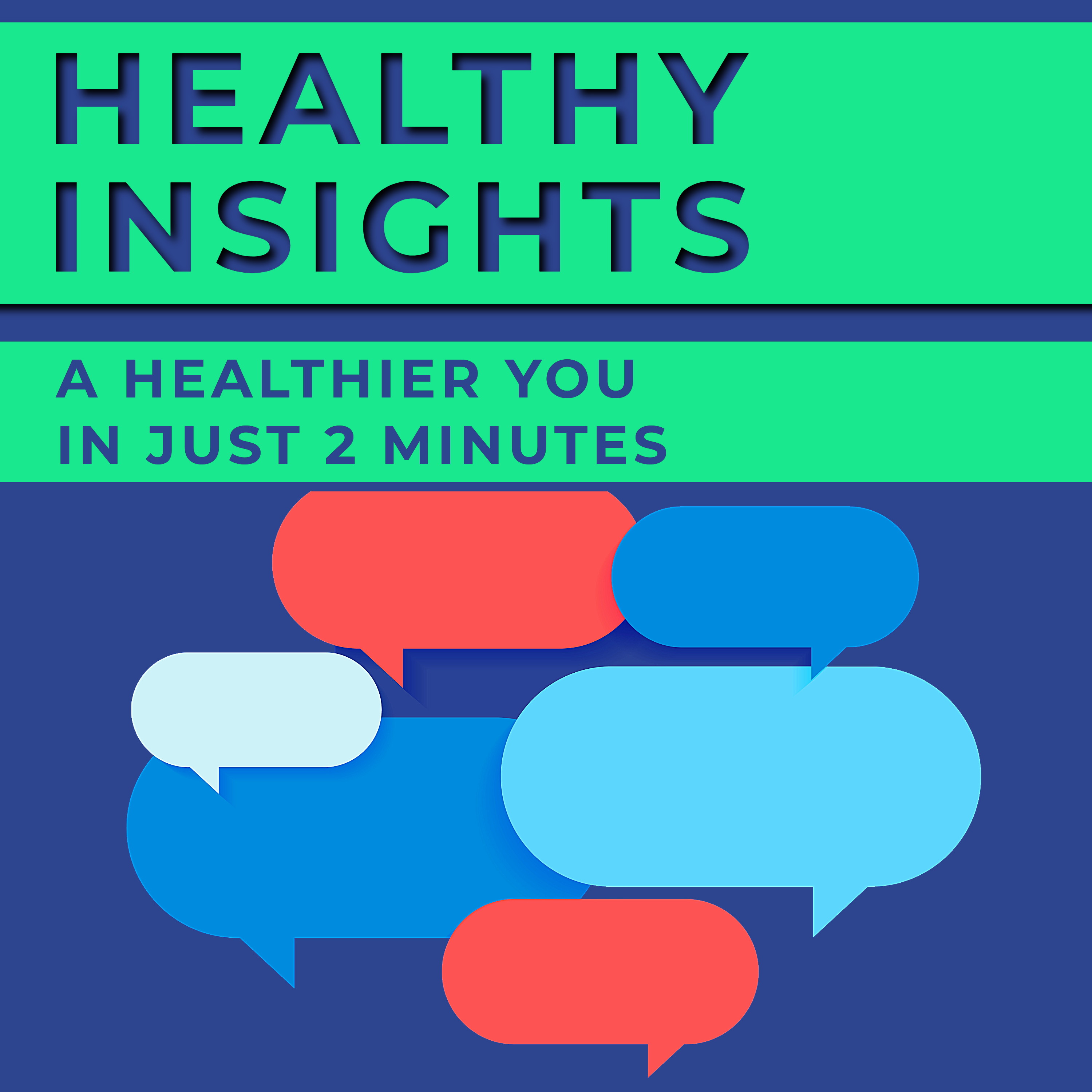Episode Transcript
[00:00:00] Speaker A: All right, everyone, welcome back. Ready to dive in again?
[00:00:03] Speaker B: Absolutely. Let's do it.
[00:00:04] Speaker A: Okay, so today we are tackling PCOS management, and, you know, we're going beyond those. Those, like, surface level tips, right? We're going deep.
[00:00:14] Speaker B: Yeah.
[00:00:14] Speaker A: We've got all your research excerpts right here, and we're gonna really try to uncover those aha moments, those golden nuggets of wisdom.
[00:00:24] Speaker B: Love it.
[00:00:24] Speaker A: And thankfully, you know, I don't have to do this alone. I've got an expert by my side to help us kind of break it all down and really understand that. Why behind the what? So, are you ready?
[00:00:33] Speaker B: I'm ready. Are you ready?
[00:00:34] Speaker A: Let's do this. Okay, so just glancing through everything you sent over, I'm seeing a huge emphasis on diet and exercise, of course, low GI diets, aerobic and resistance training. And, you know, sometimes it can feel like everyone just wants us to become marathon running salad lovers. But. But what's the real impact here? What's the science?
[00:00:52] Speaker B: Yeah, and I think it's really easy to get caught up in all of those things and trying to do all the things and feel overwhelmed. But I think the key here, and it's really the key with PCOS management in general, is understanding the why behind it so that you understand why these lifestyle modifications are so important. So let's take the low GI diet example. So a lot of people think, oh, low GI diet, that means super restrictive. I can't eat anything. I have to just eat lettuce all day long. That's not really what it is.
[00:01:19] Speaker A: It's not about deprivation.
[00:01:21] Speaker B: It's not about deprivation at all. It's really about regulation. It's about regulating your blood sugar. And that's so important with PCOS because.
[00:01:30] Speaker A: Well, first of all, high blood sugar is no one's friend. Let's be honest.
[00:01:33] Speaker B: High blood sugar is no one's friend. It really isn't. And it does so many different things in the body that can kind of throw a wrench in the system. But especially with PCOS, it disrupts your insulin sensitivity, which then impacts your hormonal balance. So it's like this chain reaction. And so because hormones are at the root of PCOS, if we can manage that blood sugar through our diet, we can really make a huge impact.
[00:01:57] Speaker A: See, it's all connected. And, you know, and these benefits, they go beyond just weight management, don't they?
[00:02:02] Speaker B: Absolutely. Absolutely. So, you know, of course, weight management can be a positive side effect, but what we're really talking about with PCOS management is feeling good from the inside out. So we're talking about reducing inflammation in the body, getting those energy levels balanced, having a more stable mood. Those are the things that I really want my clients, my patients to focus on. It's not about the number on the scale, it's about how you feel.
[00:02:26] Speaker A: It's so true. And speaking of feeling your best, one of the research excerpts you had sent over suggests keeping a food and exercise diary. Have you ever done that?
[00:02:35] Speaker B: Oh, my gosh, yes.
[00:02:36] Speaker A: I actually, I tried it once, and it was amazing what I discovered, because it turned out I was basically running on fumes by, like, Wednesday, you know. No wonder I felt so off.
[00:02:45] Speaker B: That's the power of awareness, though, just bringing that awareness to what you're actually doing.
[00:02:50] Speaker A: It wasn't about judgment either. You know, I wasn't trying to shame myself for how much coffee I was drinking, but it was just that recognition, you know, to see those patterns, and then from there, I could make more conscious choices.
[00:03:00] Speaker B: Exactly. Exactly. I mean, you know, they say data is power, and it's true. Even just that simple act of tracking can be so empowering for your health journey.
[00:03:09] Speaker A: 100%. Okay, so we covered the power of food movement, but let's talk about something that often gets overlooked, the mind body connection. So much of the research you sent over highlighted mindfulness, yoga, sleep hygiene as helpful tools for PCOS management. And, you know, sometimes it just seems too simple. You know what I mean? Like, can a good night's sleep really help with this? But it turns out it really can.
[00:03:33] Speaker B: It really can. And what's fascinating here is that there is a bi directional link between stress sleep and pcos. So not only can stress and poor sleep worsen pcos symptoms, but pcos itself can make it harder to sleep and manage stress.
[00:03:48] Speaker A: Oh, it's like a vicious cycle.
[00:03:50] Speaker B: It is a vicious cycle, yeah. So you're dealing with pcos, which then makes it hard to sleep, which then.
[00:03:55] Speaker A: Increases your stress, and then that impacts the pcos.
[00:03:57] Speaker B: Exactly. Okay, so it's like this never ending cycle. But the good news is, because there is this link, that means that by addressing one, you can positively impact the others.
[00:04:08] Speaker A: So we can interrupt that cycle.
[00:04:09] Speaker B: Exactly, exactly. So even incorporating small, manageable changes, like, I'm thinking back to the research you sent, that guided meditation audio, that was a really great find. Yeah, because that's something that you can easily incorporate into your day, even if it's for a few minutes.
Imagine having this tool to just quiet those racing thoughts, even for a little bit.
[00:04:28] Speaker A: Oh, it's like hitting the reset button. On your mind.
[00:04:30] Speaker B: Yes, exactly. Exactly. And then we can't forget about sleep hygiene. You know, establishing that consistent sleep schedule can do wonders for your body.
[00:04:39] Speaker A: It's true. It's about giving your body what it needs, right? Giving it the chance to regulate, restore.
[00:04:44] Speaker B: Exactly, exactly. And it sounds so simple, but you'd be surprised how many people just don't prioritize sleep.
[00:04:51] Speaker A: Oh, I know. It's such a struggle. Okay, so we've covered a lot of ground here today, from the impact of a low GI diet on our blood sugar and hormones, to the importance of exercise, managing our stress through mindfulness, prioritizing sleep, and, you know, these small but mighty lifestyle changes, they can really make a world of difference.
[00:05:09] Speaker B: They really can.
[00:05:10] Speaker A: But I do want to leave everyone listening with just one final thought. You know, we've talked a lot about what we can control when it comes to managing pcos through diet, exercise, stress, sleep. But what about the role of community and support in all of this?
[00:05:25] Speaker B: That is such a great point, and it's something that we often overlook. But the truth is, we're not meant to go through this alone, connecting with others who really get it, who are on a similar journey. Even if it's just, you know, listening to a podcast like this one, it can be so incredibly powerful. It can provide support, it can validate your experiences, and it can remind you that you're not alone.
[00:05:46] Speaker A: It's so true. And sometimes, just knowing you're not alone in a struggle can make all the difference. So, for everyone listening, remember this deep dive. It's just the beginning. Keep exploring those resources. Keep asking questions, and most importantly, keep connecting with yourself and with others. Until next time.
[00:06:02] Speaker B: Bye, everyone.


